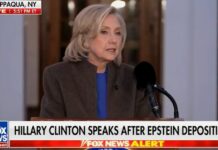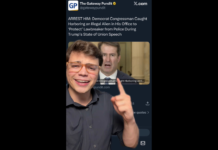It’s a sign of the times when renowned entrepreneur Elon Musk, famed for his role in Tesla and SpaceX, openly endorses the Republican Party.
Musk’s Political Evolution: A Shift to the Right
Recently, Elon Musk explained his decision to part ways with the Democratic Party and pledge his support to Donald Trump for the 2024 election. In a candid interview with Jordan Peterson, Musk expressed that his principles of meritocracy and personal freedom align more closely with the Republican Party.
The Transformation of the Democratic Party
Musk reflected on a time when the Democratic Party was known as a beacon of free speech and meritocracy. However, according to him, those days are behind us. He believes that today’s Democratic Party is more focused on censorship under the guise of combating hate speech, a stark departure from its original ethos.
Republican Party: A Haven for Independent Thinkers?
Contrary to what some might think, Musk views the Republican Party as the new bastion of meritocracy. He sees them as defenders of free speech and personal freedom. This perspective isn’t unique to Musk; many former liberals share this sentiment, viewing the GOP as a bulwark against authoritarian tendencies on the left.
Tackling a Controversial Issue: DEI
Musk didn’t shy away from addressing DEI (Diversity, Equity, and Inclusion), criticizing it as a form of racism and sexism. He argued that DEI policies foster division rather than equality, asserting that they’re fundamentally anti-meritocratic as they categorize people based on race, ethnicity, and gender instead of recognizing individual merits.
The Perils of Identity Politics
Both Musk and Peterson concur that identity politics are causing societal rifts. Rather than fostering unity, they believe it exacerbates division. Peterson shared personal experiences from Toronto, noting a shift in attitudes towards race and gender, which he attributes to the left’s emphasis on group identity.
Questioning the Left’s Stance on Free Speech
Musk highlighted what he sees as a hypocrisy within the left regarding free speech. He argued that while the left once championed free speech as a means to challenge norms, they now suppress it under the guise of combatting hate speech. Conversely, he believes the right upholds free speech as a fundamental value and a means to voice inconvenient truths.
Division: A Tool for Manipulation?
Musk and Peterson discussed how identity politics could be used to control and manipulate individuals. They suggested that by dividing society into smaller factions, people are kept at odds with each other, detracting from larger issues. This is seen in the proliferation of LGBTQ+ identities and the ongoing creation of new socio-economic categories linked with disabilities and sexualities.
The Unrealistic Dream of Utopia
The left often proposes that open borders, racial homogeneity, and wealth redistribution will eradicate prejudice and hatred. However, Musk and Peterson argue this is an overly simplistic understanding of human nature. They advocate for recognizing our differences and returning to shared American values, rejecting the arbitrary groups created by the left.
Conclusion
Elon Musk’s transformation from a disillusioned liberal to an ardent supporter of the Republican Party is indicative of changing political landscapes. It serves as a wake-up call for those who value free speech, meritocracy, and personal freedom. As Musk suggests, the left has strayed from these principles, and it falls to individuals to uphold them. What are your thoughts on Musk’s political shift? Can you relate to his experiences? Share your thoughts in the comments below.



